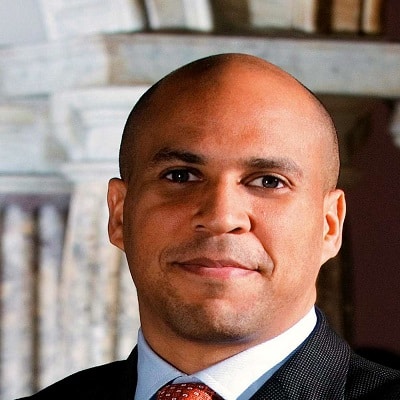 By Erik Altieri, NORML Communications Director
By Erik Altieri, NORML Communications Director
On Thursday, November 21st, the Maine Legislative Council will be voting on whether or not to allow the introduction of LR 2329, a measure sponsored by Rep. Diane Russell (D-Portland) which would legalize the cultivation, possession, and use of marijuana by individuals over the age of 21 in addition to establishing retail outlets to sell marijuana and marijuana products.
It is extremely important that we cross this first hurdle at the Legislative Council tomorrow. We have a very real chance of passing this legislation if it is introduced. This is why we are asking all Maine residents to please take a minute of your time to contact the members of the council and urge them to support the introduction of this legislation.
Maine: Click here to contact the Legislative Council in support of LR 2329
Final language will be released soon, but you can see an overview of the legislation below. NORML believes this legislation presents a smart approach on marijuana for the state of Maine. It would allow anyone over the age of 21 to possess up to 2 1/2 ounces of marijuana, cultivate up to 6 plants, and purchase marijuana from established retail outlets. It also has key provisions in place that ensure individuals with several years residency in Maine and experience as a current medical marijuana dispensaries or caregiver are given priority on business licenses, explicitly leaves the current medical marijuana law in place for patients, and directs tax revenue to help low income patients be able to afford their medicine.
LR 2329: An Act To Align Maine’s Marijuana Laws with the Guidelines
Governing Taxation and Regulation Issued by the Federal GovernmentOverview
LR2329, “An Act to Align Maine’s Marijuana Laws With the Guidelines Governing Taxation and Regulation Issued by the Federal Government” is presented in light of the remarkable shifts in culture, events and momentum clearly moving Maine toward a model that regulates and taxes marijuana in a similar manner to the way we do alcohol. The Portland voter initiative answered the question for many, “Is Maine ready?”
Now, it’s time for a responsible, pragmatic policy. In short – a Maine approach. Here are some key elements of the bill, as well as the context or rationale where appropriate:
-The policy is focused on the responsible adult market and does not rewrite, recreate or in any way restrict the medical marijuana laws already on the books. Patients will continue to be able to procure medicinal marijuana from their current registered caregiver or registered dispensary provider without disruption. Further, the taxation structure currently in place for patients will remain in place going forward. The bill creates an entirely new chapter of law.
-The bill does allocate 5% of the excise tax revenue to a new fund to help low-income medical marijuana patients afford their medication.
-Adults over the age of 21 are allowed to possess, purchase, and consume cannabis.
-The department will be set up under what is currently BABLO – Bureau of Alcoholic Beverages and Lottery Operations. This department already oversees tightly regulated products and is most capable of overseeing the start-up of a similar set of rules for running a vice business.
-There are four types of licenses: Retail, Cultivation, Products and Testing. The cultivation licenses are divided up into tiers, allowing people to start small and scale up as appropriate to a maximum cultivation facility of 10,000 square feet – or, roughly a quarter of an acre. This addresses concerns about putting “the little guy” out of business.
-To obtain a license under the bill, applicants must have been a resident of Maine for a minimum of two years. This ensures that Maine people benefit from the industry directly.
-There will be a 10% sales and 15% excise tax with a minimum excise tax of $1.50 per gram.
-The revenue allocations include, but are not limited to: public school construction, addiction treatment services, youth marijuana prevention, Drugs for the Elderly, research, underage sales prevention, increased number of Drug Recognition Experts (DREs), Fund for a Healthy Maine, liquor and marijuana inspectors, etc.
-One of the key requirements from the DOJ was to avoid diversion, either to minors or to out-of-state locations where cannabis remains illegal. Further, they seek to stop rewarding cartels and drug dealers. The best way to meet both of these concerns is to ensure supply meets demand. If there is too much supply, the product will be diverted. If there is too much demand, dealers will step in. By extrapolating market data, we have estimated the production capacity should be a total of about 400,000 square feet to meet demand. We have authorized the bureau to allocate licenses at their discretion based on the number of applicants.
-Colorado is experiencing difficulties in setting up its regulatory structure because they did not set aside revenue for the process, and their licensing fees have not met the revenue needs. LR2329 gives discretion to the bureau to determine the cost for setting up the program, and adjusting application and licensing fees to ensure they have adequate resources to do so responsibly.
-Youth prevention is a big issue for the Coalition, but also for addiction counselors and law enforcement. The bill includes restrictions on advertising, strict guidelines against furnishing to minors, security requirements for farmers, and the creation of a funded Youth Marijuana Prevention advisory council. The Council’s primary objective will be to reduce youth consumption of marijuana throughout Maine.
-The bill authorizes “home grow,” a popular expectation for individuals – and a check against industrial marijuana. Municipalities may sell twist tie tax stamps to adult consumers who must attach the tie to the plant demonstrating they have the right to grow it. This does a few things. It allows individuals 21+ to do so while providing an easy way for law enforcement to know whether the plant in question is legal. Further, it ensures revenue for the state. The home cultivation license would prohibit the licensee to sell their product. We also outlined specific notifications that must be presented to the licensee, ensuring they are aware of their obligations and responsibilities under the law.
-At every opportunity, we have worked to protect the civil liberties of individuals who naturally fear reprisal from the federal government should policies change.
-There is no referendum in this bill.
Source: NORML – make a donation



